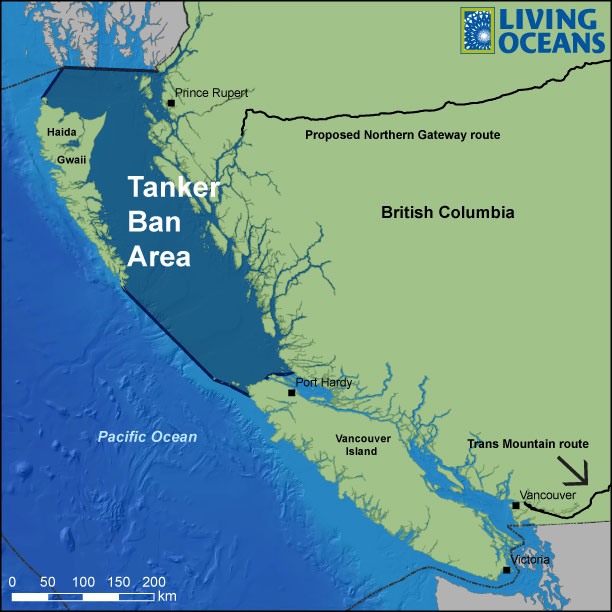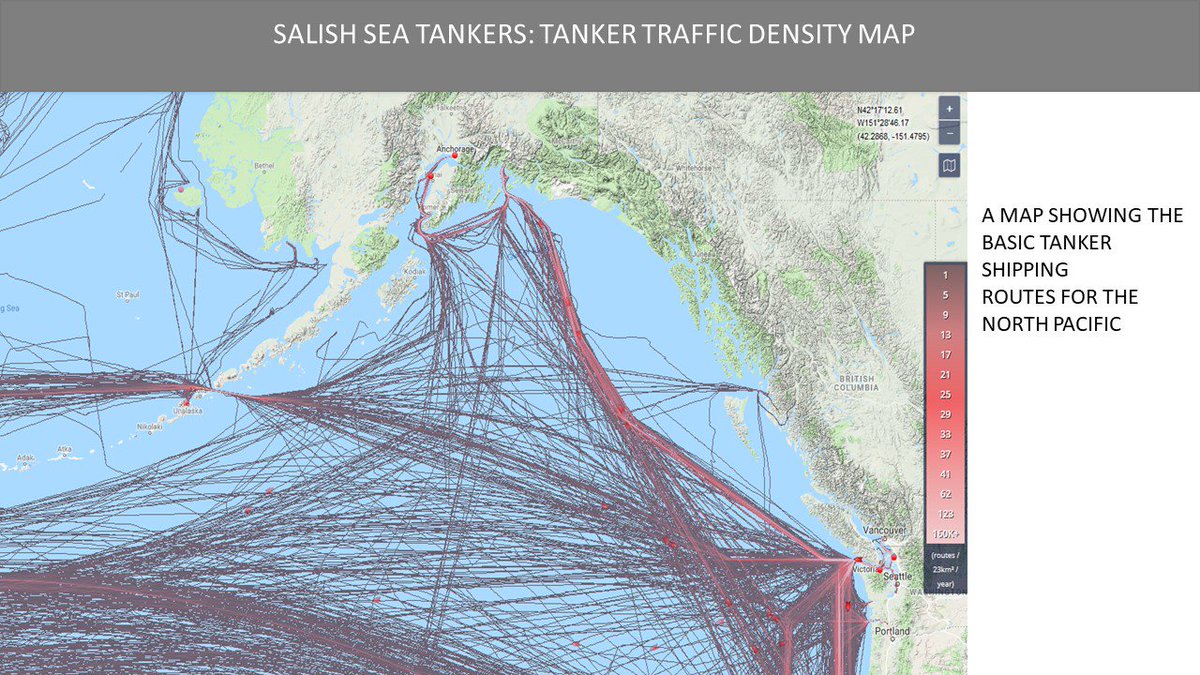Canada’s Stupid Tanker Ban – Its time for Bill C-229

Four massive oil tankers ply the waters around our tanker ban zone every day, as if that would make any difference at all in a disaster. Canada has the longest coastline in the world at over 243,000 kilometres.
- Each year, tankers carry about 80 million tonnes of oil from Canada’s coasts.
- Each day, about 180 large commercial vessels travel within 200 miles of our shores.

Oh how our memories are so short, it was not that long ago and we were all believing and loving our local MP Nathan Cullen for standing up to protect our first love, the salmon in our rivers.
Well we bought his lines, hook line and sinker.
Not one pipeline built and the salmon disappeared anyways, imagine the political fodder had a pipeline been built, for certain it would be the pipelines that wiped out the salmon.
Ok so what did we really accomplish, and or fail to accomplish? Bear with me as we look into some of the details of how we got snookered. The following are quotes from the Terrace Standard showing or arguing the intent of the tanker ban.
“The idea of a moratorium comes from actions by Pierre Trudeau’s government in 1972. First, there was a motion and then there was a ban. The wording of the motion indicated that tanker traffic from Alaska to Puget Sound, in the lower-mainland’s Georgia Basin, was too dangerous for tankers to traverse. The moratorium indicates tankers cannot travel through the Dixon Entrance, Hecate Strait and Queen Charlotte Sound, regardless of direction or destination.”
“While neither current provincial or federal governments recognize the 1972 ban, what they do uphold is the 1988 “Tanker Excursion Zone,” a voluntary measure agreed to by the United States and Canada that states tankers must remain 50 nautical miles offshore in order to prevent south bound oil tankers from Alaska using the inside strait east of Haida Gwaii. This excursion zone is respected by the international shipping industry and is monitored by the Canadian Coast Guard and Specific States B.C. Oil Spill Task Force, according to B.C. Ministry of Environment staff.”
“In December of 2010, Cullen passed a motion to the House of Commons similar to the unofficial 1972 ban, as an attempt to put it into law.
It read “the Government should immediately propose legislation to ban bulk oil tanker traffic in the Dixon Entrance, Hecate Strait and Queen Charlotte Sound as a way to protect the west coast’s unique and diverse ocean ecosystem …” It was passed 143 to 138 in the House of Commons but was non-binding. Since then parliament has not acted on the matter.”
Now here in a nutshell is the only reason Nathan Cullen tabled the bill for a tanker ban, from the same article “Cullen said that if the legislation were passed, it would absolutely put a stop to the Enbridge Northern Gateway pipeline.”
There you go, the only reason for the ban was to stop the the Enbridge Northern Gateway pipeline.
I will leave that debate to another day or another argument, namely the pros and cons of the Gateway debate, right now we need to examine if or not the tanker ban should even exist.
Next the Dogwood Initiative was funded directly by CorpEthics, USA One can legitimately say “outside interference” by American environmentalists. There is a direct link between Taylor Bachrach at the organization he really represents using the riding of Skeena-Bulkley Valley as his ways and means to further the agenda of an American Funded Environmentalist group.
Would you believe this liar when he says “For the people of the Northwest, this issue has been settled for decades. I’m looking to my colleagues in the House to recognize that fact once again and vote down this bill.”—Taylor Bachrach, Member of Parliament Skeena-Bulkley Valley”
Note that MP Taylor Bachrach was part of the Dogwood Initiative at that time!
“Mr. Campbell says it is ridiculous to suggest a loaded oil tanker going from Alaska to Washington is a risk to the coastline, but one going from Kitimat or Prince Rupert to Asia is not.
“The closer they are to our shores, the more hazardous they are,” said Mr. Campbell, whose organization is asking for an oil tanker ban on B.C.’s north coast.
Crude oil tankers (34 last year) go through southern waters to a terminal in Burnaby, but they follow a route around the tail end of the TEZ that is close to rescue tugs and was left open to allow traffic into Washington ports.
It is the rugged, pristine, remote B.C. coast – including the shoreline of the Great Bear Rain Forest – that the Dogwood Initiative doesn’t want to see exposed to tanker traffic.
Mr. Campbell says 14 condensate tankers have been allowed into northern B.C. ports since January, 2006, and if the proposed pipelines to Alberta’s tar sands are built, 320 tankers a year will soon be transiting B.C.’s most remote waters.”
Lets fast forward to today.
Every day four U.S. oil tankers that sail down the coast every day from Alaska, so the tanker ban only stops Canada from selling oil, how stupid is that? If indeed it stopped ALL tanker traffic you might have a legitimate argument. Likewise to suggest the coastline of BC must be protected while at the same time allowing tankers up the Saint Lawrence River (imagine trying to do that in the Fraser River!) and then to suggest that the east coast of Canada, the salmon and lobster fishery is not worth the same as the BC Coast? How incredibly unCanadian.
If the ban was so important, it should apply to all waters off the coast of Canada, not just the ones where they propose a pipeline.
Its a real joke on Canadians to have a ban on tankers, when if fact the only object was for an AMERICA ENVIRONMENTAL GROUP with the help of Taylor Bachrach to thwart the Enbridge Northern Gateway pipeline, its time to repeal this anti Canadian legislation.
